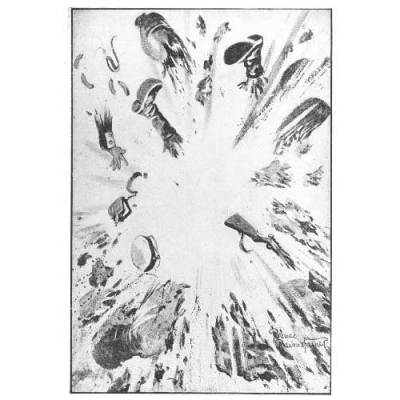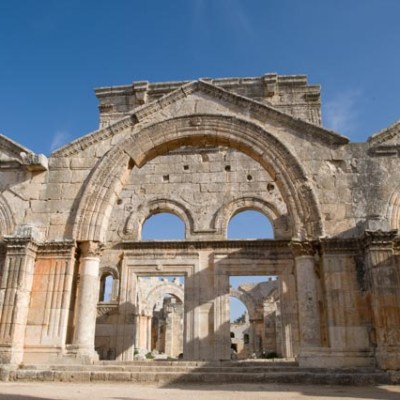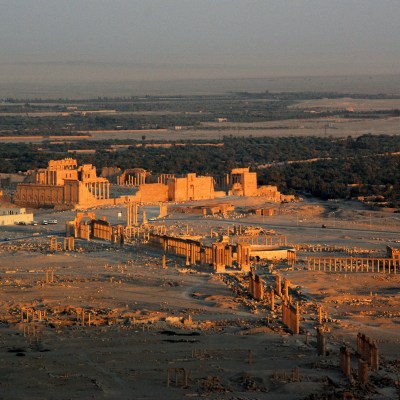‘I was successful, with two cars in front of my beautiful house, in it my beautiful family,’ says Fares Garabet. From 2005, he had been the dean of the faculty of fine arts in Damascus, a professor and renowned cartoonist. Already prior to the outbreak of hostilities in Syria in 2011, he had started to feel unsafe, sensing the tide turning. Nevertheless, before the conflict, he was able to publish all of his subtle, political cartoons in Qatar newspaper Raya as well as in the US-based Cagle Post. As tensions escalated, he had to tread increasingly carefully.
So carefully, that it eventually became unbearable. With each drawing he made in Syria, he had to consider: is this the one that will get me fired, imprisoned or, even worse, harm the people I care about? His children, now aged 20 and 25, were able to come to Germany for their studies in 2015 and early 2016 respectively. In the summer of 2015, Garabet decided to go too. To his great astonishment, getting a visa to come to Germany was not a problem: ‘It was apparently enough that I had a PhD and spoke English.’ He then had four months to wrap everything up, ‘sell my car, tell my university I was only leaving for a few days to visit family’, before getting on a plane to leave his war-torn country behind.
© Fares Garabet

As a cartoonist in Syria, Garabet had to invent explanations for each of his drawings, to keep himself out of trouble – ‘I would say this soldier was Israeli, not Syrian,’ he explains by way of example. One might assume that, in the safety of another country, he would feel liberated to do as he pleased – creative freedom at last. But now, living in Dresden, far away from any direct threats to himself or his children, he tells me he still cannot draw freely, and feels more torn than ever.
Recent events in Europe have shown how cartoons really can be a matter of life and death – we expect them to be explosive but their power can backfire. For artists working on the cutting edge, the consequences of their work can fall on friends and family. In 2011, for example, musician Malek Jandali’s elderly father and mother were badly beaten in Homs after Jandali performed a concert in Washington in support of the Syrian opposition. One of the hardest things for refugees is the responsibility they feel for the people they left behind.
© Fares Garabet
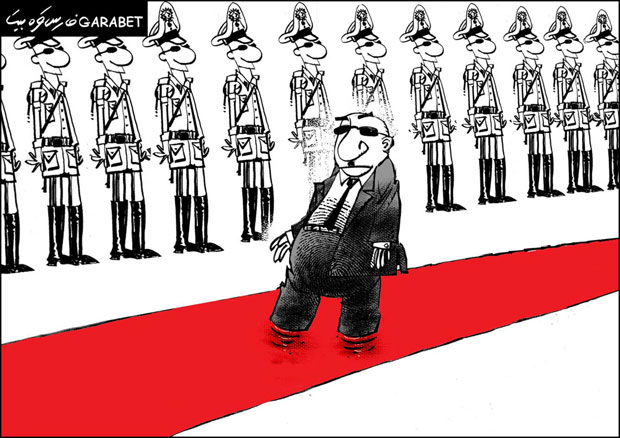
And so Garabet has honed his style to create deeply critical work that is as subtle as it is straightforward, as veiled as it is brutal. The almost childlike cartoons have to sink in for a while before something clicks. That way, he explains, people do not get offended in the blink of an eye. The punch is deliberately delayed, so that ‘as a viewer, when you have to figure something out in a cartoon and you solve it, you will remember it forever’. In one drawing, a man appears to walk down a red carpet. It takes several seconds to realise that he is wading through a pool of blood.
Even now, Garabet continues to hide some of his best works from his own audience. ‘I have about 5,000 followers on Facebook, most of whom are Syrian. If I put something on my Facebook page, what if they tell their brother, or their uncle who is a public official?’ But at the same time he feels compelled to draw, to use his works to draw attention to what is happening in his country: ‘I feel guilty all the time, and although I know that I am safe here in Germany and it is dangerous in Syria, there is something pulling me back constantly. So I feel I have to draw, it is my duty. And I cannot bury myself with my own hands.’
© Fares Garabet
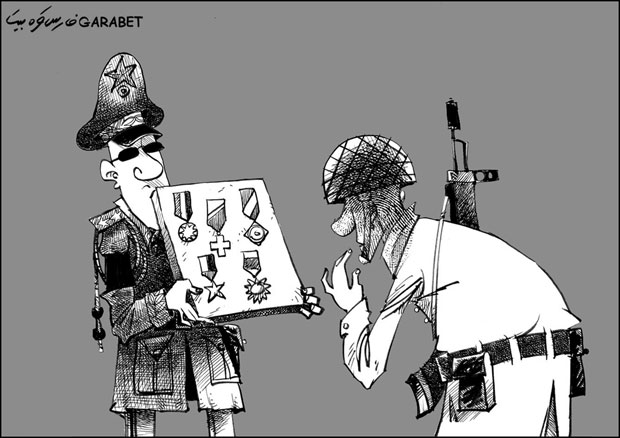
There is a loophole: others can provide his cartoons with the exposure they deserve. ‘If a journalist sees my work and decides to put it in their paper, it’s ok, but I cannot put it there, or people will attribute it directly to me. At the same time, I have to accept that once it’s out there, it is out of my hands, a newspaper can do anything with it, and I cannot control it.’ In Heidelberg’s Galerie Arabeske (until 20 December) Garabet’s cartoons have been enlarged and placed side-by-side. It is the first time some of these cartoons have been on public display. Garabet points to a work where a soldier is picking medals, which are awarded posthumously. ‘I could not publish that, but a journalist can.’
It’s a compromise he has been forced to make, between extreme caution and an unbearable urge to act. Garabet has been in Dresden for 10 months and is suffering from the adjustment, the emptiness of his days, the jobseeker’s allowance and the endless insecurity. His status is precarious: his current residency permit is only for one year; after that he can apply for it to be extended for another three. He is allowed to work, but getting a foot in the door is difficult: ‘I struggle with this, after I worked hard my entire life.’ Travel is also a problem. Recently, he was unable to go to his own exhibition opening in Paris, because the terms of his asylum bind him to Germany. But he adores seeing his children in Germany and the chances they get there. ‘My daughter, she started university during the war. She could not have a boyfriend or anything like that, all she could think about was how to get to university and then back home safely. So now I’ve pushed them, I’ve forced them to go out there and to make up for their lost years.’
Garabet himself has also had opportunity to feel unencumbered in his new home. ‘I had all these nudes that I’d started to paint in Syria, which were forbidden. Everyone wants to look at them but nobody is allowed to show them in a gallery.’ He laughs properly for the first time. ‘So that’s what I did when I was in Germany. I finally showed my nudes. And nobody got into trouble.’
Fares Garabet’s cartoons are on display at Galerie Arabeske, Heidelberg, until 20 December. His portfolio and additional information can be found on 3ALOG.

